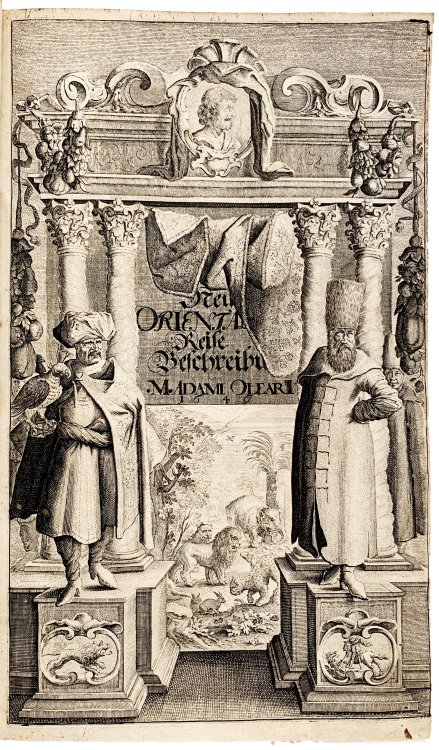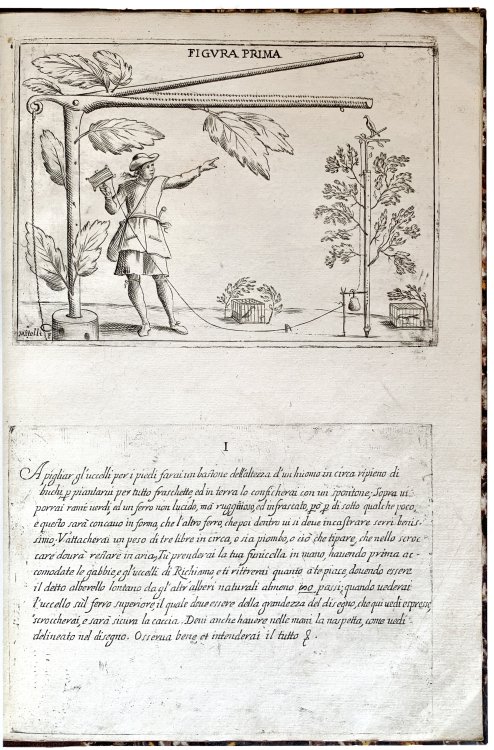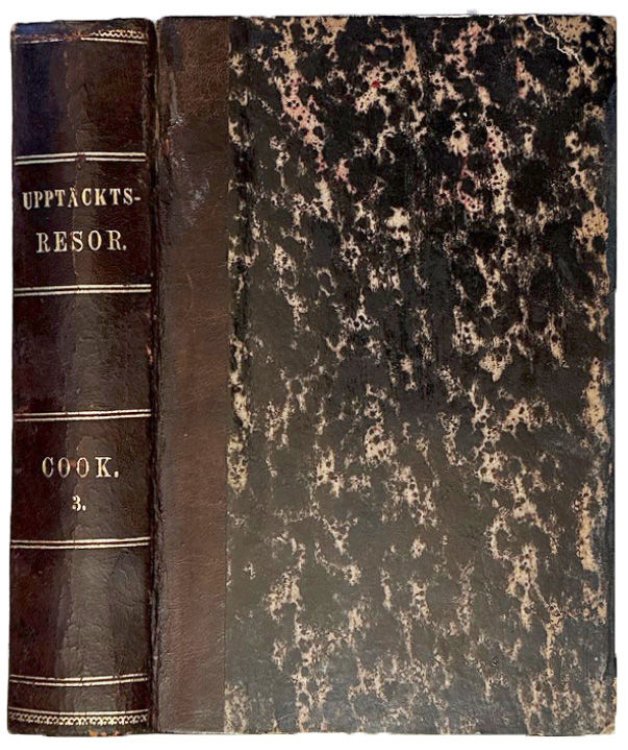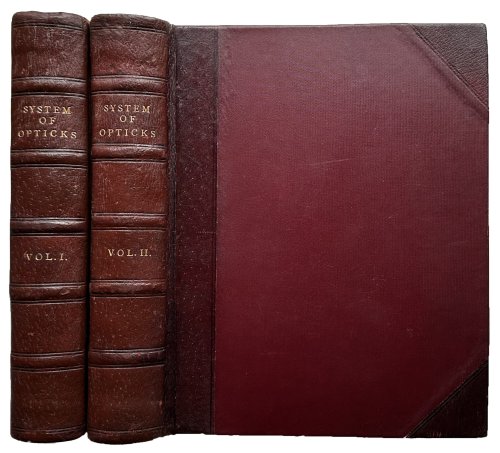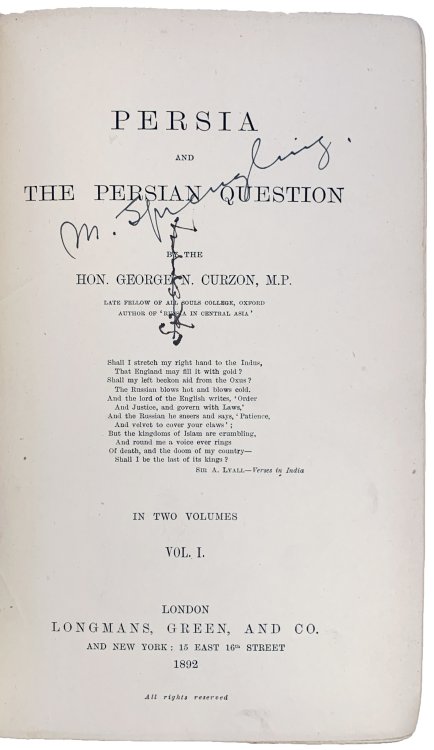
Persia and the Persian Question.
$2,500.00 USD • Used
London:: Longman's, Green, and Co., 1892., 1892. 2 volumes. 8vo. xxiv, 639, [1]; xii, 653, [1] pp. 43 plates, additional illustrations, 9 maps, and 1 folding map. Original black gilt-stamped cloth...
Store: JeffWeberRareBooks [View Items]
London:: Longman's, Green, and Co., 1892., 1892. 2 volumes. 8vo. xxiv, 639, [1]; xii, 653, [1] pp. 43 plates, additional illustrations, 9 maps, and 1 folding map. Original black gilt-stamped cloth; neatly restored. Modern open-end sturdy box. Ownership signatures of Watson R. Sperry, 1892 (incl. title). Very good. FIRST EDITION. This is the most comprehensive assessment of Persia of its day. Curzon was responsible for establishing the prevailing view of the British of their on-going, pre-oil, interest in Persia, as a boarder state to India of the British Empire. / Curzon "travelled around the world: Russia and Central Asia (1888 89), a long tour of Persia (September 1889 January 1890), Siam, French Indochina and Korea (1892), and a daring foray into Afghanistan and the Pamirs (1894). He published several books describing central and eastern Asia and related policy issues. A bold and compulsive traveler, fascinated by oriental life and geography, he was awarded the Patron's Gold Medal of the Royal Geographical Society for his exploration of the source of the Amu Darya (Oxus). His journeys allowed him to study the problems of Asia and their implications for British India, whilst reinforcing his pride in his nation and her imperial mission." "Those five long, arduous journeys did much to color his thinking and provide material for a succession of books." [Wikip.] / "Curzon's interest in Britain's eastern colonies and dominions had first been aroused while he was a schoolboy at Eton. It was an interest that never left him and was reflected in his lifelong concern for Persia as an outer bastion in the defense of India. His travels had instilled in him a profound belief in the civilizing virtues of the British empire in the East. He regarded British India as "the noblest fabric yet reared by the genius of a conquering nation" (Curzon, Persian Question I, dedication) and believed that "without India the British empire could not exist" (I, p. 4). The defense of India thus came to dominate much of his thinking in the years ahead. For him Persia and the waters of the Persian Gulf, no less than Afghanistan and Tibet, were borderlands that had to be protected from the expan sionist policies of czarist Russia. / "Contrary to what has often been written, Curzon spent little more than a total of three months in Persia, entering the country in late September 1889 and leav ing it before the end of January the following year. On his return to London he took lodgings in a London suburb and concentrated on writing his magnum opus, Persia and the Persian Question, which was, by dint of hard, concentrated work, ready for publication less than two years later. By any standard these two volumes, totaling some 1,300 pages, are a remarkable achievement, the more so as Curzon knew no Persian and spent only a short time in the country, of which he saw only a small section. To prepare himself, he first read, either in the original or in translation, virtually everything that had been written about Persia in the West. On the journey itself, while writing articles for The Times, he had assiduously collected information, with considerable help from Albert Houtum Schindler, a naturalized British subject, German by birth, who had first gone to Persia as an employee of the Indo -European Telegraph Company and was at the time of Curzon's visit adviser to the newly established Impe rial Bank of Persia and recognized as the best-in formed European in the country. He not only provided Curzon with a wealth of detailed information but also, as Curzon freely acknowledged, "personally revised nearly every page" of the manuscript (Persian Question I, p. xiii). The two profusely illustrated volumes embrace almost the whole of Persia, describing in fascinating and profound detail its history, antiquities, institutions, administration, finances, natural resources, commerce, and topography with a thoroughness no single writer has achieved before or since. As a critical account of Qajar Persia, the work is unsurpassed. / "Curzon never set foot in Persia again, but the impressions formed during his journey and recorded in his book never left him and were reflected in his policies as viceroy and foreign secretary. He believed that Russia had designs on Persia's northern provinces and the Persian Gulf and that the acquisition of Mashad and Sistan would open the doors to Herat and Baluchistan on the threshold of India. With the defense of India in mind, he considered that "the preservation, so far as it is still possible, of the integrity of Persia must be registered as a cardinal precept of our Imperial creed" (Persian Question II, p. 605). To this end the British position in Persia had to be strengthened and every effort made to impress on "the native mind the prestige of a great and wealthy Power" (Persian Question II, p. 172). Although Curzon was dazzled by the glorious past of Persia, he was struck by the country's decay and squalor. He also formed a low opinion of the Persian character: Persians might be "an amiable and polished race and have the manners of gentlemen . . . vivacious in temperament, intelligent in conversation, and acute in conduct," yet they were "consummate hypocrites, very corrupt, and lamentably deficient in stability or courage" (Persian Question II, p. 632). They had therefore to be saved from themselves and from the Russians. It was a task for the British, for Persia was "a country that should excite the liveliest sympathies of Englishmen; with whose Government our own gov ernment should be upon terms of intimate alliance; and in the shaping for which of a future that shall be not unworthy of its splendid past the British nation have it in their power to take a highly honourable lead" (Per sian Question II, p. 634). Here, in the final sentence of his book, lay the germ of Curzon's ill-fated Anglo -Persian Agreement of 1919." [Denis Wright, (1993) for, Encyclopaedia Iranica]. PROVENANCE: Watson Robertson Sperry (1842 1926), was appointed Minister Resident/Consul General to Persia in 1893. He was a resident of Delaware, graduated from Yale University, a journalist, former publisher of the Wilmington Morning News. His appointment, though brief, as U.S. Minister to Persia was made by President Benjamin Harrison, and the new administration appointed a replacement, Alexander McDonald (serving as Minister Plenipotentiary, later Minister Resident, 1893 1897). Extra Postage will be required. First Edition.
Product Info
Publisher: Longman's, Green, and Co., 1892.
Year: 1892
Type: Used
Binding: Softcover
Seller Info
JeffWeberRareBooks
Address: Place Pury 9 Neuchâtel,
Website: https://www.weberrarebooks.com
Country: Switzerland



